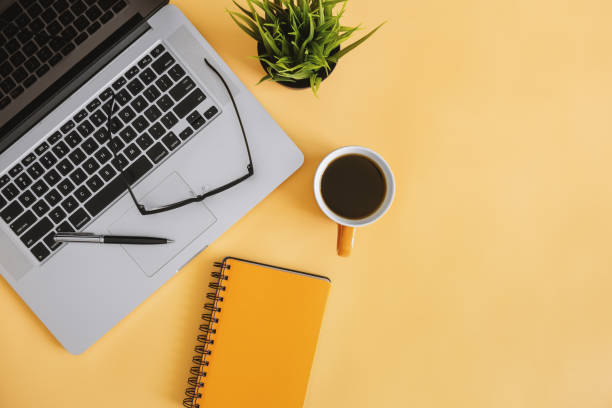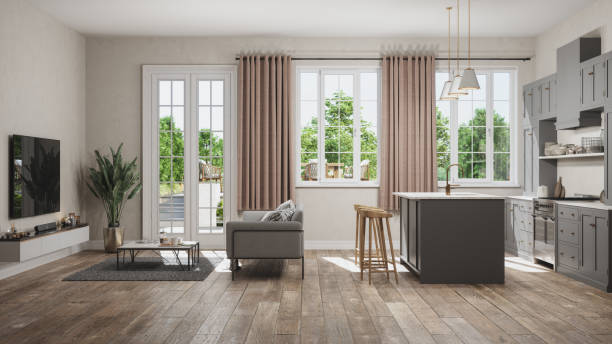Quote:-
“Minimalism is not a lack of something. It’s simply the perfect amount of something.” – Nicholas Burroughs
Nicholas Burroughs is a designer, writer, and artist who is known for his work on typography, branding, and minimalism. This quote captures the essence of minimalism, which is about finding the perfect balance between having too much and too little, so we can focus on the things that truly matter in our lives.
Table of Contents
1. Introduction to Minimalism
Minimalism is a lifestyle philosophy that emphasizes living with less material possessions and focusing on experiences and personal growth. The concept of minimalism has gained popularity in recent years as people seek to simplify their lives and reduce stress. At its core, minimalism is about intentionally choosing to live with only the things that add value to your life and letting go of the rest. In this article, we will explore the benefits of minimalism, the basic principles of the lifestyle, and how to apply it to different aspects of your life.
2.Benefits of Minimalism
There are many benefits to adopting a minimalist lifestyle. Here are some of the most significant:
- Less stress: With fewer possessions to worry about, you can reduce your stress levels and feel more in control of your life.
- More time: When you have fewer things to manage, you can spend more time on activities that matter to you, such as spending time with loved ones or pursuing hobbies.
- Increased focus: By removing distractions and excess from your life, you can focus more on the things that truly matter to you.
- Greater clarity: Minimalism can help you gain clarity on what you truly value in life, allowing you to focus on those things and let go of what doesn’t matter.
- Financial freedom: By buying less and focusing on the essentials, you can save money and work towards financial independence.
- Environmental impact: Minimalism can also have a positive impact on the environment, as you consume less and reduce waste.
Overall, minimalism can help you live a more intentional and fulfilling life, free from the constraints of material possessions.
3.The Basic Principles of Minimalism
There are several basic principles that underlie the minimalist lifestyle. Here are some of the most important ones:
- Intentionality: Minimalism is all about being intentional about what you bring into your life. This means carefully considering what you really need and what adds value to your life.
- Simplicity: Minimalism is about simplicity, both in terms of physical possessions and in the way you live your life. By simplifying your life, you can reduce stress and increase your overall sense of well-being.
- Mindfulness: Mindfulness is an essential aspect of minimalism. It involves being present in the moment and fully engaged with your surroundings, rather than being distracted by technology, material possessions, or other distractions.
- Decluttering: One of the most important principles of minimalism is decluttering. This involves removing the excess possessions from your life that are no longer useful or meaningful.
- Prioritization: Minimalism is about prioritizing what really matters in your life. This means focusing on the things that bring you joy, fulfillment, and a sense of purpose.
By adopting these principles, you can begin to live a more intentional and fulfilling life, free from the distractions and excess that can hold you back.
4.Decluttering Your Home
Decluttering your home is a key aspect of minimalism. Here are some tips to help you get started:
- Start with a plan: Before you begin decluttering, make a plan of action. Decide which areas of your home you want to tackle first, and set a goal for how much you want to get rid of.
- Be honest with yourself: When deciding what to keep and what to let go of, be honest with yourself about what you really need and what is just taking up space.
- Start small: If you’re feeling overwhelmed, start with a small area, such as a single drawer or closet.
- Sort your belongings: Sort your belongings into categories, such as “keep,” “donate,” and “throw away.” Be ruthless in deciding what you no longer need.
- Consider the KonMari method: The KonMari method, popularized by Marie Kondo, involves decluttering by category (such as clothing, books, and sentimental items) and keeping only the items that “spark joy.”
- Get rid of things responsibly: Donate or sell items that are still in good condition, and recycle or dispose of items that cannot be reused.
- Embrace a minimalist mindset: Once you have decluttered your home, it’s important to adopt a minimalist mindset and avoid bringing unnecessary items back into your home.
By decluttering your home, you can create a more peaceful and functional living space, and reduce the stress and overwhelm that can come with excess possessions.
5.Simplifying Your Wardrobe
Simplifying your wardrobe is another important aspect of minimalism. Here are some tips to help you create a more minimalist wardrobe:

- Assess your current wardrobe: Take a look at your current wardrobe and decide what items you really wear and what items you never wear.
- Keep only what you love: When simplifying your wardrobe, only keep items that you truly love and feel confident in.
- Stick to a color palette: By sticking to a color palette of neutral colors, you can create a wardrobe that is versatile and easy to mix and match.
- Invest in quality pieces: Rather than buying lots of cheap, fast fashion items, invest in a few high-quality pieces that will last a long time.
- Consider a capsule wardrobe: A capsule wardrobe is a small collection of versatile items that can be mixed and matched to create a variety of outfits.
- Embrace minimalism in your accessories: Keep your accessories simple and minimal, such as a few pieces of jewelry or a single handbag.
- Shop mindfully: When shopping for new items, be mindful of what you really need and avoid impulse purchases.
By simplifying your wardrobe, you can reduce decision fatigue, save time getting ready in the morning, and create a more cohesive and stylish look.
6.Streamlining Your Digital Life
Streamlining your digital life is another important aspect of minimalism. Here are some tips to help you simplify your digital life:

- Unsubscribe and unfollow: Unsubscribe from email newsletters and unfollow social media accounts that no longer add value to your life.
- Delete unused apps and files: Delete apps and files from your devices that you no longer use or need.
- Create digital folders: Organize your digital files into folders to make them easier to find and navigate.
- Limit screen time: Set limits on your screen time and avoid mindless scrolling through social media or other apps.
- Practice digital minimalism: Practice digital minimalism by only using technology that adds value to your life and avoiding unnecessary use of technology.
- Back up important files: Back up important files and photos to the cloud or an external hard drive to avoid losing them.
- Use productivity tools: Use productivity tools, such as task management apps or calendar apps, to keep yourself organized and on track.
By streamlining your digital life, you can reduce stress and overwhelm, increase productivity, and create more time for the things that truly matter to you.
7.Mindful Consumption: Shopping with Purpose
Mindful consumption is a key component of the minimalist lifestyle. Here are some tips to help you shop with purpose and avoid mindless consumption:
- Make a list: Before you go shopping, make a list of the items you really need. Stick to the list and avoid impulse purchases.
- Avoid sales and discounts: Sales and discounts can be tempting, but they often lead to mindless consumption. Instead, focus on buying high-quality items that will last a long time.
- Consider the environmental impact: When shopping, consider the environmental impact of the products you buy. Choose products that are sustainably produced and packaged.
- Buy secondhand: Consider buying secondhand items, such as clothing or furniture, rather than always buying new. This is a great way to reduce waste and save money.
- Support ethical brands: Choose to support ethical brands that prioritize sustainability, fair labor practices, and social responsibility.
- Avoid fast fashion: Fast fashion is cheaply made clothing that is designed to be worn only a few times before being thrown away. Avoid fast fashion and choose to invest in higher-quality, long-lasting items.
- Practice gratitude: Practice gratitude for the things you already have and avoid the trap of always wanting more.
By shopping with purpose and mindfulness, you can reduce the environmental impact of your consumption, save money, and lead a more intentional and fulfilling life.
8.Applying Minimalism to Your Finances
Applying minimalism to your finances is an important aspect of the minimalist lifestyle. Here are some tips to help you simplify your finances:
- Create a budget: Creating a budget is an essential step in simplifying your finances. It helps you keep track of your income and expenses and ensures that you are living within your means.
- Prioritize your spending: Prioritize your spending by focusing on the things that really matter to you. This can help you avoid mindless spending on things that don’t bring you joy or fulfillment.
- Reduce debt: Reducing debt is an important part of simplifying your finances. Focus on paying off high-interest debt first, such as credit card debt, to reduce the amount of interest you are paying.
- Simplify your accounts: Consider simplifying your accounts by consolidating bank accounts or credit cards. This can make it easier to manage your finances and avoid unnecessary fees.
- Automate payments: Automating payments can help you stay on top of your bills and avoid late fees. Set up automatic payments for your bills and savings contributions.
- Practice frugality: Practicing frugality is an important part of minimalism. By avoiding unnecessary expenses and focusing on the things that truly matter, you can save money and live a more fulfilling life.
- Invest in experiences: Rather than always focusing on material possessions, consider investing in experiences that bring you joy and fulfillment. This can help you prioritize your spending and live a more intentional life.
By applying minimalism to your finances, you can reduce stress and anxiety around money, save money, and live a more intentional and fulfilling life.
9.Minimalism and Relationships
Minimalism can have a significant impact on your relationships, including your friendships, romantic partnerships, and family relationships. Here are some ways that minimalism can positively affect your relationships:
- Focus on quality time: Minimalism can help you prioritize quality time with loved ones, rather than constantly seeking material possessions or experiences. By focusing on quality time, you can deepen your relationships and create meaningful memories.
- Let go of toxic relationships: Minimalism encourages you to let go of things that no longer serve you, including toxic relationships. By prioritizing your well-being, you can cultivate healthy relationships and avoid those that bring negativity or harm.
- Practice gratitude: Practicing gratitude for the people in your life can help you strengthen your relationships and deepen your appreciation for those around you. Minimalism encourages you to focus on what you have, rather than always seeking more.
- Simplify gift-giving: Minimalism can simplify gift-giving by encouraging you to give and receive thoughtful, intentional gifts rather than overwhelming your loved ones with material possessions. This can help you connect with loved ones on a deeper level and show your appreciation in a more meaningful way.
- Communicate openly: Minimalism can encourage open and honest communication in your relationships. By focusing on what truly matters, you can have more meaningful conversations and build stronger connections with those around you.
By applying minimalism to your relationships, you can cultivate deeper connections, prioritize quality time, and let go of toxic relationships. This can lead to a more fulfilling and satisfying life.
10.Maintaining Your Minimalist Lifestyle
Maintaining a minimalist lifestyle can be challenging, but it is worth it for the many benefits it brings. Here are some tips to help you maintain your minimalist lifestyle:
- Regularly declutter: Clutter can build up quickly, so it’s important to regularly declutter your home and possessions. Set aside time every few months to go through your belongings and get rid of anything you no longer need or use.
- Avoid mindless consumption: Mindless consumption is the enemy of minimalism. Avoid impulse purchases and focus on buying only what you truly need and will bring value to your life.
- Practice gratitude: Practicing gratitude can help you appreciate what you have and avoid constantly seeking more. Take time each day to reflect on what you are grateful for in your life.
- Simplify your routines: Simplifying your daily routines can help you save time and reduce stress. Consider streamlining your morning routine, meal planning to reduce food waste, or creating a cleaning schedule to keep your home tidy.
- Avoid comparison: Comparison can lead to feelings of inadequacy and a desire for more possessions. Focus on your own journey and what is important to you, rather than comparing yourself to others.
- Prioritize self-care: Self-care is an important part of maintaining a minimalist lifestyle. Take time to rest, recharge, and prioritize your well-being.
By incorporating these habits into your daily life, you can maintain a minimalist lifestyle and reap the benefits of a simpler, more intentional life. Remember, minimalism is a journey, not a destination, so be patient with yourself and enjoy the process.
11. Minimalism with 5 examples in different areas of life
Here are 5 examples of minimalism in different areas of life:
- Minimalism in Home Décor: Instead of filling your home with excessive furniture or decor items, minimalism in home décor focuses on a clean, clutter-free environment. This can include simple, neutral color palettes, functional furniture pieces, and only displaying a few cherished decorations.

- Minimalism in Wardrobe: Minimalism in wardrobe focuses on owning only essential clothing items that you truly love and wear regularly. This can include a capsule wardrobe of versatile, high-quality pieces that mix and match well, and avoiding trends and fast fashion.
- Minimalism in Digital Life: Minimalism in digital life involves reducing the amount of time and energy you spend on technology and digital devices. This can include limiting social media use, simplifying your digital workspace, and using technology intentionally to enhance your life, rather than as a constant distraction.
- Minimalism in Finances: Minimalism in finances involves living within your means and prioritizing spending on experiences that bring you joy and fulfillment, rather than material possessions. This can include creating a budget, reducing debt, and practicing frugality.
- Minimalism in Relationships: Minimalism in relationships focuses on prioritizing quality time with loved ones, cultivating healthy relationships, and letting go of toxic relationships or those that no longer serve you. This can include practicing gratitude, simplifying gift-giving, and communicating openly and honestly with those around you.
These are just a few examples of how minimalism can be applied in different areas of life. The overall idea behind minimalism is to simplify and prioritize the things that truly matter, so you can live a more intentional and fulfilling life.
12.what are the factor everyone consider in living a minimalist life?
There are many factors that people consider when living a minimalist life, but here are some common ones:
- Simplicity: Minimalism is all about simplifying your life, so you can focus on the things that truly matter to you. This means reducing the clutter in your physical environment, your schedule, and your mental space.
- Purpose: Living a minimalist life means being intentional about what you bring into your life and what you let go of. You want to make sure that the things you have and the activities you engage in serve a purpose and bring you joy.
- Mindfulness: Being mindful means being present in the moment and paying attention to your thoughts, feelings, and surroundings. Minimalism encourages mindfulness by helping you to appreciate the things you have and to be grateful for them. To know about mindfulness please click on link https://amateurs.co.in/what-is-mindfulness-unlocking-the-secret-life-changing-power-of-mindfulness-benefits-for-mental-health-physical-health-and-productivity/
- Sustainability: Minimalism can also be seen as a way of living sustainably, by reducing your consumption of resources and minimizing your impact on the environment.
- Financial Freedom: Minimalism can also help you to achieve financial freedom by reducing your expenses and living within your means. This can allow you to save money, pay off debt, and focus on experiences and relationships rather than material possessions.
These are just a few of the factors that people consider when living a minimalist life, but everyone’s journey is different, and what works for one person may not work for another. Ultimately, it’s about finding what brings you joy and meaning in life and living in a way that aligns with those values.
Reference:-

[…] https://amateurs.co.in/transform-your-life-the-power-of-minimalism/ […]
[…] https://amateurs.co.in/transform-your-life-the-power-of-minimalism/ […]
[…] https://amateurs.co.in/transform-your-life-the-power-of-minimalism/ […]
[…] “Embrace Simplicity and Transform Your Life: The Power of Minimalism” […]